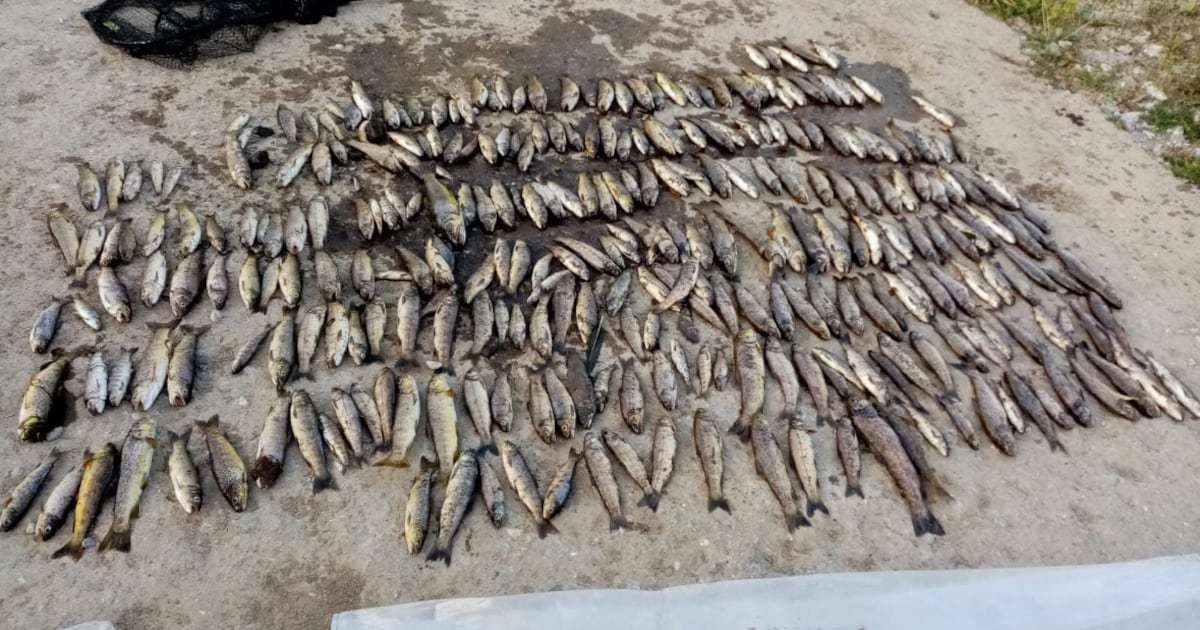Other News
Legendary journalist Georg Stefan Troller dies aged 103
Read more on post.
Georg Stefan Troller, who died on September 27 at the age of 103, lived what could simply be described as a storied life.
An Austrian Jew who escaped the Nazis, he emigrated to the US but returned to Germany to work for the Allied Forces as an interpreter during the liberation of the Dachau concentration camp. Troller would eventually spend the rest of his life in Europe, gaining prominence as a writer and reporter, and especially for his unconventional interviews of international luminaries for German television.
Fleeing the Nazis
Born on December 10, 1921 to a Jewish furrier family in Vienna, he was taunted for his Jewish heritage on the streets and by schoolmates. “You had to live with it, and it got worse under the Nazis,” he once recalled.
Troller’s father however ensured he got a good education and made him read all the classics; he knew the words to the Faust monologue by heart. He trained to become a bookbinder but was eventually forced to flee the Nazisat age 16, travelling via Czechoslovakia to France. In his suitcase he’d carried Karl Kraus’ The Last Days of Mankind.
In 1941, he secured an American visa in Marseilles, and was drafted into the US military service in 1943. As the Allied troops advanced through occupied France and Nazi Germany, he served as an interpreter in interrogating German prisoners of war.
“Back then, I never heard the word ‘liberation,'” Troller often said in interviews, adding that freedom and democracy weren’t even part of the German way of thinking. “They all admired our jeeps, the walkie-talkies. No wonder you won the war, with that equipment, they would say,” he said in a 2005 TV interview with German public broadcaster WDR.
A visit to Hitler’s Munich home
In 1945 in Munich, the young GI was present when the US army searched Adolf Hitler’s private residence. He pocketed a few “Nazi souvenirs” and sent them to his father in the US, who was shocked.
On May 1, 1945, Troller arrived at the Dachau concentration camp, which was liberated by US troops, to interrogate SS officers who had been captured there. What he encountered there made a lasting impact on him, and he could only stomach the sight of the emaciated prisoners and corpses through his camera lens.
After a short stint at Radio Munich, he worked as a reporter for Munich’s Neue Zeitung. His heart, however, was in Vienna. “At that time, I walked all the streets I knew, for days, for nights, to quell my homesickness,” he said. He concluded however that “you can’t regain a homeland again any more than you can a childhood.”
Returning to the USA, he studied drama and theater, only to travel to Paris in 1950 on a scholarship to study at the Sorbonne.
“Paris opened my eyes and taught me so much,” he wrote in his 2009 memoir. “It was big city life compared to the small-town limitations you found everywhere in Germany,” he said of the city that would become home.
Legendary interviews
In early 1960s Paris, Troller found his calling as a TV reporter. As a correspondent for WDR, his nine-year long Paris Journal show gave viewers delightful insights into lesser-known aspects of the City of Lights.
In 1971, he began working for Germany’s ZDF TV broadcaster, which would set the course for his life. Over the next 22 years, he wrote TV history with his legendary unconventional interview show, Personenbeschreibung (Describing People). His guests included Marlon Brando, Brigitte Bardot, Alain Delon, Woody Allen, Kirk Douglas and Romy Schneider.
Initially, producers frowned upon his subjective interviewing style, as it lacked the requisite neutrality. However, his sensitive and critical approach to interviewing people struck a chord, turning him into a role model amongst other journalists.
Self-healing through journalism
To him, the camera was a protective shield. “Being a journalist was a means of self-healing,” Troller once recalled. “My soul as a Jewish emigrant who had escaped the Holocaust and who had lost 19 relatives was wounded,” he told the DJV Journal in a 2017 interview, adding that he calls the job he does “healing through other people.” A good interview is almost like a confession, he said.
Later, he turned to TV films, documentaries, books, photo books and essays for magazines.
In 2019, he published a memoir close to his heart, entitled Liebe, Lust und Abenteuer — 97 Begegnungen meines Lebens (Love, Desire and Adventure — 97 Encounters in My Life).
Prior to the COVID-19 outbreak, the indomitable personality was still going on book tours to promote his memoir. The then 98-year-old man wowed fans with readings about the story of his life with his trademark self-deprecating, Viennese humor.
This article has been translated from German.
Other News
Exact date clocks go back in Ireland as 5pm darkness looms

Read more on post.
With autumn now firmly established, the telltale signs of the changing season are becoming increasingly evident. Mornings arrive with a sharp chill, evenings are closing in more rapidly, and temperatures are gradually beginning to fall.
Alongside the cooler conditions, another seasonal change looms on the horizon – the conclusion of daylight saving time. For many, this development brings conflicting emotions.
On the positive side, we gain an additional hour of rest when the clocks retreat – a delightful bonus, particularly as the mornings grow more bitter. However, on the negative side, earlier sundowns mean extended evenings confined indoors and gloomier journeys home.
This year, the clocks across Ireland will retreat by one hour on Sunday, October 26, signalling the conclusion of daylight saving time. The previous adjustment occurred on Sunday, March 30, when the clocks advanced by one hour.
According to timeanddate.com, sunset today occurs at 7.10pm, declining steadily to 6.54pm by next Saturday, October 4. By Sunday, October 26, the evening will grow dim even sooner, with sundowns occurring at 5.04pm – the day the clocks alter, reports the Irish Mirror.
Mobile phones and digital watches will adjust automatically on Sunday, October 26 at 2am, retreating to 1am, though conventional timepieces will require manual modification. The tradition of “falling back” was initially established to maximise the use of natural daylight.
While mornings grow brighter and provide us with an additional hour of illumination, evenings inevitably grow dim sooner, transforming our daily patterns as the season shifts. All EU member states, bar Iceland which sticks to Western European Time all year round, adjust their clocks at this time.
In 2019, the European Union voted with the possibility of putting an end to Daylight Saving Time after 2021, following a survey that revealed most people would rather not change their clocks twice annually. However, due to the Covid pandemic, this decision was postponed.
EU institutions have yet to make headway on implementing this decision, and the European Commission has stated it has no plans to present a new proposal on the matter to Parliament. Looking forward, next year will see the clocks spring forward on Sunday, March 29, and fall back on Sunday, October 25 – maintaining the familiar seasonal rhythm.
Join our Dublin Live breaking news service on WhatsApp. Click this link to receive your daily dose of Dublin Live content. We also treat our community members to special offers, promotions, and adverts from us and our partners. If you don’t like our community, you can check out any time you like. If you’re curious, you can read our Privacy Notice.
For all the latest news from Dublin and surrounding areas visit our homepage.
Other News
England’s Red Roses v Canada | Women’s Rugby World Cup final latest

Other News
‘Some big polluter is breathing sigh of relief’: Questions remain over Blackwater fish kill

Read more on post.
At 9.10am on last August 12th, an angler made a call to the Environmental Protection Agency (EPA) to report a large number of dead and ailing fish on the Blackwater river close to Mallow, Co Cork.
Almost simultaneously, Inland Fisheries Ireland (IFI) also contacted the agency to raise the alert.
The EPA dispatched inspectors to three sites on the river within the hour, kick-starting an investigation that would ultimately involve multiple government departments, public bodies and scientific, environmental and health agencies.
But it was too late. Around 42,000 fish were dead or dying. Already the trail that might have led to the cause had gone cold.
The distress that the deaths of so many fish, mostly highly valued salmon and trout, caused among anglers, environmentalists and the wider community has turned to anger and frustration since.
It seems improbable that a multi-agency investigation with experienced personnel, good local knowledge and access to sophisticated laboratory services has been unable to pinpoint the cause of death.
Yet that is the conclusion of the final report on the incident published on Thursday evening.
“The pollutant or the source that caused the fish mortalities has not been identified,” it says.
Tom Ryan, EPA director of enforcement, said afterwards: “Nobody wants to see what happened here.
“This is a terrible, devastating event in a protected water and it is intolerable.
“If we could find the culprit for this, if it’s in our jurisdiction, we certainly would be holding them to account.”
The “culprit”, he believes, could be “something one-off, possible sinister or criminal in nature – or reckless”.
He was thinking of something dumped, washed out or allowed to spill into the river. It was fast-acting and, unfortunately for testers, equally fast to disappear.
The chances of identifying it were already slim when the investigation began.
Marine Institute analysis points to the fish encountering some sort of pollutant on August 5th or 6th – yet no testing of water, fish or potential industrial or wastewater pollution sources was organised before August 12th.
Dead fish were spotted on August 9th, but Inland Fisheries Ireland, the EPA, Uisce Éireann and Cork County Council say they were only notified between August 11th-12th.
There is no single point of contact for a member of the public to call so all relevant agencies can hear and respond.
“Can all these arrangements be improved? Can we learn from this? Of course,” Dr Ryan said. “But reaction is one thing, prevention is what’s key.”
Responsibility for pollution prevention resides in different jurisdictions, however.
The EPA licences large industries and wastewater facilities and polices the pollution they can legally undertake.
County councils permit smaller businesses and are responsible for farm inspections.
Water quality monitoring comes under multiple agencies. Enforcement of standards and regulations is convoluted.
Several licensed operators were non-compliant at the time of the fish kill, including repeat offender, North Cork Creameries, although their breaches were found not to have caused the incident.
Dr Elaine McGoff of the Sustainable Water Network said a shake-up in regulatory authorities was needed.
“There should at least be a 24-hour emergency hotline that gets inspectors on the ground immediately something happens,” she said. “Some big polluter is out there breathing a big sigh of relief.”
Bob Seward of the Angling Council of Ireland said the final report could not be last word on the issue.
“It’s not finished as far as we are concerned. There needs to be lessons learned. There needs to be an evaluation of the processes – for protection and response. This is fire brigade stuff.”
-
Politics4 days ago
European Parliament snubs Orbán with vote to shield Italian MEP from Hungarian arrest
-
Culture3 weeks ago
Life, loss, fame & family – the IFI Documentary Festival in focus
-
Culture2 months ago
Fatal, flashy and indecent – the movies of Adrian Lyne revisited
-
Environment1 week ago
Key oceans treaty crosses threshold to come into force
-
Health5 days ago
EU renews support for WHO’s Universal Health Coverage Partnership
-
Culture1 week ago
Farewell, Sundance – how Robert Redford changed cinema forever
-
Culture4 days ago
Twilight at 20: the many afterlives of Stephenie Meyer’s vampires
-
Culture4 weeks ago
What is KPop Demon Hunters, and why is everyone talking about it?












































